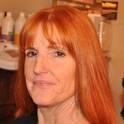The growth of environmental education (EE) programs in the U.S. has produced a wide array of curricula, offered by a range of agencies. Approaches to the human-nature relationship vary within this diverse movement, as do goals and pedagogical strategies. Weaknesses in the environmental education movement persist, and given recent shifts in the political climate of the U.S., must be addressed if EE is to be an effective tool in stimulating the systemic change demanded by our current environmental crises. An increase of synergy between geography educators and environmental educators could strengthen both.
This paper examines the goals, actions and curricula of EE organizations in Florida through an online survey and curricular analyses to identify dominant target levels of environmental literacy being emphasized within Florida’s EE community. Findings support the existences of a strong non-formal environmental education sphere, which retains a heavy emphasis on lower levels of ecological literacy, such as immersion in nature and fundamental scientific knowledge. More efforts to foster systemic and critical thinking are needed. The EE community must collaborate to determine which organizations and sites are best suited to these efforts.
